Karl Egloff, a Swiss-Ecuadorian, holds the record for the fastest ascent on Kilimanjaro when made an impressive climb of Kilimanjaro on 13th August 2014, completing the ascent in 4 hours and 56 minutes. This surpassed the previous record set by Kilian Jornet, who had achieved the climb in 5 hours and 23 minutes the year before. Like Kilian, Karl took the route from Umbwe Gate to Uhuru via the Western Breach and then descended to Mweka Gate. After a brief 4-minute rest at the summit, he descended to the park gate in 1 hour and 42 minutes, totalling a remarkable 6 hours and 42 minutes for the entire ascent and descent. But that wasn’t the end of it. Karl then made his way back down to the gate in an astonishing time of 6 hours, 42 minutes, and 24 seconds. You can witness Karl’s incredible climb by clicking on this link to Karl Egloff’s world-record ascent.
It normally takes between 5 days to 9 days to climb Mount Kilimanjaro, with the 5-day Marangu Route being the shortest time offered by most Kilimanjaro trekking companies and the 9 days Northern Circuit Route being the longest time you use to climb Kilimanjaro via the Northern Circuit Route. Now imagining these climbers doing both the ascent and descent in just a few hours, is mind-boggling, because Mount Kilimanjaro is the highest mountain in the whole of the African continent.
The most recent three attempts to climb and descend Kilimanjaro have followed the same plan – a direct ascent up the challenging Umbwe route, followed by a run down the designated descent route, Mweka. Fortunately, climbing Kilimanjaro does not require technical skills or equipment; the summit can be reached using steep trails while avoiding sheer cliffs. The record-setters reached the top with minimal gear, opting for lightweight running clothing and shorts instead of heavy jackets. Covering a 33-mile round-trip journey up to 15,177 feet, passing through jungle, glaciers, and clouds to the highest point in Africa, then back down. The average trekker takes seven days to complete this journey, but Kilian Jornet and Karl Egloff did it in around seven hours, setting records for the fastest ascent and descent on Kilimanjaro.
Cold weather is not the primary concern for a skyrunner racing up Kilimanjaro. Instead, they face challenges such as altitude and the physical toll of running up a mountain as quickly as possible. These athletes are some of the toughest runners and most dedicated trainers in the world. For example, during the 100.5-mile Hardrock 100, Jornet dislocated his shoulder but continued to finish the race, winning for the fourth time. Jornet’s training and racing strategies involve a minimum of 700 to 1200 hours of training each year, which means at least 2 to 3 hours of training every single day. Both Jornet and Egloff have spent their lives climbing mountains and perfecting acclimatization techniques, making Kilimanjaro’s altitude a serious challenge even for them. Jornet had to stop multiple times to catch his breath near the summit, describing it as difficult.
For an athlete like Jornet, an endurance challenge that seems difficult is nearly impossible for most people. Egloff managed to beat Jornet’s record by 32 minutes, climbing up and down Kilimanjaro in just 6 hours and 42 minutes. He then later took the ascent-descent record from Jornet on the 22,837-foot Aconcagua. Despite this, Jornet still holds an impressive number of world records, including being named 2018 Adventurer of the Year by National Geographic for climbing Mount Everest twice in just over five days without using oxygen or support. Despite the competition, the two athletes maintain a friendly relationship. More recently, skyrunner Fernanda Maciel broke the fastest female ascent-descent record on Kilimanjaro, running up Umbwe and down to Mweka Gate in just 10 hours and six minutes in 2017. Several months later, Kristina Schou Madsen changed strategies and managed to beat Maciel’s ascent record by running up the Mweka route in 6 hours and 53 minutes, which was 15 minutes faster than Maciel’s ascent time of 7 hours and 8 minutes. This feat was achieved on Feb. 23, 2018. Only time will tell if another contender will challenge Kilimanjaro’s speed record this year.
Fastest time to climb Kilimanjaro
The swiftest recorded completion times for ascending and descending Kilimanjaro are:
- Karl Egloff (2014): 6 hours, 42 minutes and 24 seconds
- Kilian Jornet (2010): 7 hours, 14 minutes
- Simon Mtuy (2006): 9 hours, 21 minutes and 47 seconds
The three athletes took the Umbwe Route, which is known for being the most direct way to reach the summit, and then they came back through the Mweka route until they reached the finishing point at the Mweka Gate. Before attempting to climb Mt Kilimanjaro, many fast runners choose to acclimatize on Mount Meru.
Fastest ascent and descent (unaided)
Simon Mtuy, a Tanzanian, previously held the record for the fastest ascent and descent on Kilimanjaro. On February 22, 2006, he completed the climb from Umbwe Gate to the summit and back in just 9 hours and 19 minutes, achieving the fastest unaided ascent and descent. Despite suffering from a bout of illness, he carried all his own supplies and even took a few breaks along the way. Simon, who runs a trekking agency, displayed sportsmanship when he greeted Kilian in 2010 after he had broken Simon’s record. The climb was verified by Tranquil Kilimanjaro and the data was submitted to the Guinness Book of World Records. Finding water was a significant challenge for Simon due to the dry season.
Fastest ascent (female) – and descent
Danish athlete Kristina Schou Madsen accomplished a rapid climb to the summit of Kilimanjaro via the Mweka Route, completing the journey in just 6 hours, 52 minutes, and 54 seconds. Normally used as a descent-only route, Mweka Route offers the advantage of a direct path to the top, which likely influenced Kristina’s choice to take this route. She achieved this feat on February 23rd, 2018, and her accomplishment has been officially recognized by the International Skyrunning Federation, with GPS and video evidence provided to validate her record-breaking climb and descent.
How did Kristina Schou Madsen do it?
During an interview with GearJunkie, Kristina Schou Madsen explained that growing up in Denmark, where the highest point is only 187m above sea level, made preparing for Kilimanjaro a difficult task. To prepare for the challenge, Kristina practised on a treadmill set at an elevation and spent a significant amount of time on the stair machine. She also supplemented her training with running 80-110km each week, as well as participating in other sports like biking, spinning, and boxing in order to build the endurance and flexibility needed for such a trek. The gradual acclimatisation to high altitude is crucial for a successful summit and to avoid conditions such as Acute Mountain Sickness (AMS) or deadly cerebral and pulmonary oedema.
Fastest Kilimanjaro Ascents by a Woman
The fastest Kilimanjaro ascent (only) records for women are:
- Kristina Schou Madson (2018): 6 hours 52 minutes and 54 seconds.
- Brazilian Fernanda Maciel (2017): 7 hours 8 minutes
- Anne-Marie Flammersfeld (2017): 8 hours and 32 minutes
- Zimbabwean, Debbie Bachmann (2011): 11 hours, 51 minutes
The shortest and fastest route to the summit of Kilimanjaro
Known for its difficulty, the Umbwe route on Mount Kilimanjaro is widely regarded as the most challenging. With a rapid ascent to high altitude and limited opportunities for acclimatization, this route is not for the faint of heart. Starting from the south, the climb is short, steep, and direct, which is why all the fastest climbers have used this route to smash their speed record climbs on Kilimanjaro. The trail changes direction after reaching Barranco Camp, heading east and crossing underneath Kilimanjaro’s Southern Ice Field on the Southern Circuit before reaching the summit at Barafu. The descent takes place via the Mweka route.
Check out our 6 Days Umbwe Route trek
Karl Egloff
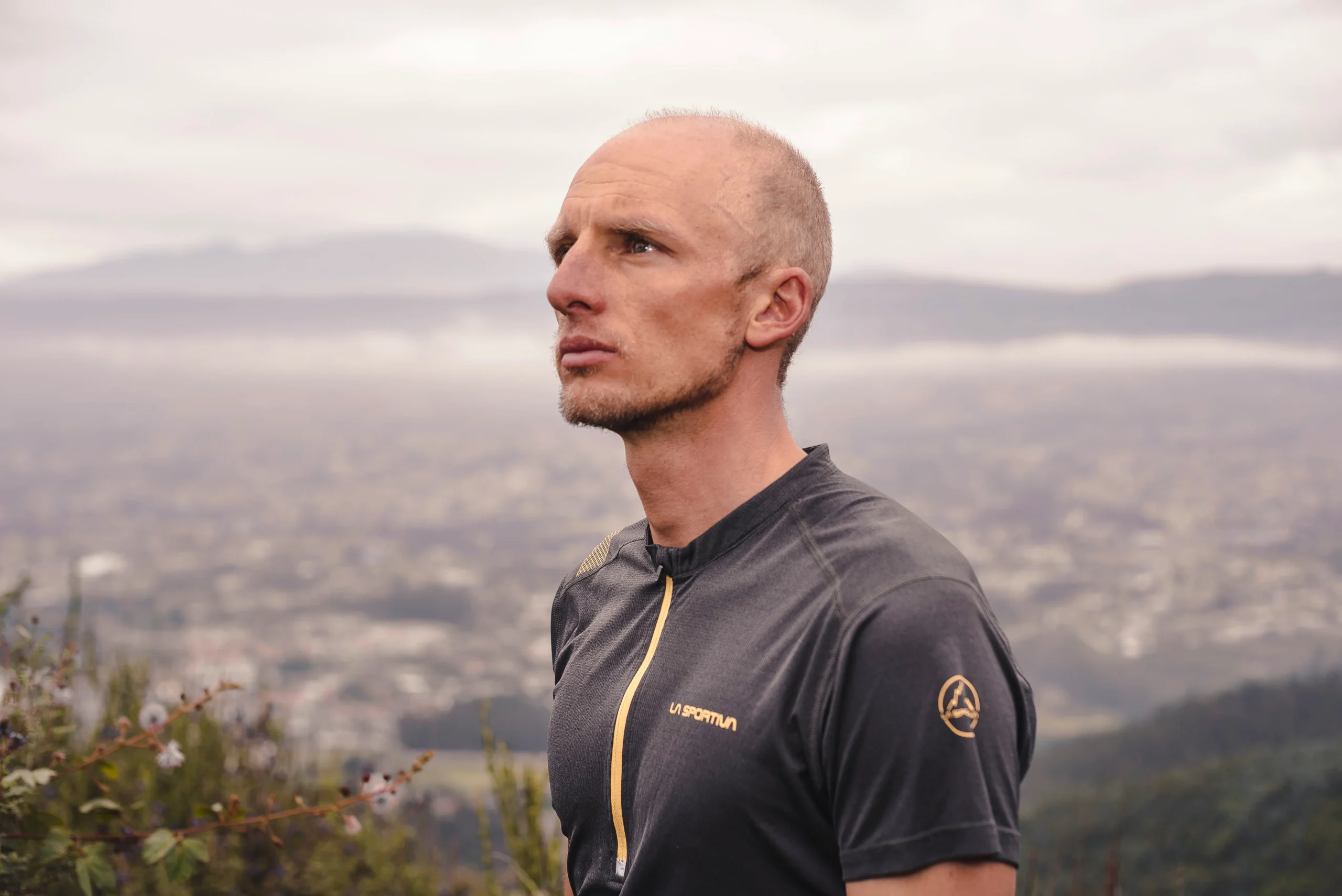 Born in Ecuador on March 16, 1981, Karl Egloff is a Swiss-Ecuadorian athlete and mountain guide who is well-known for his speedy ascents of high mountains, such as the Seven Summits. In December 2012, he gained fame in Ecuador for breaking the record for a speed ascent of Cotopaxi, climbing up and down in an impressive 1 hour and 37 minutes. Karl Egloff gained international attention in August 2014 when he surpassed Kilian Jornet’s record for a speed ascent of Kilimanjaro, accomplishing the climb in just 6 hours and 42 minutes. In February 2015, he also broke Jornet’s record on Aconcagua, making the ascent in 11 hours and 52 minutes. Additionally, in June 2019, he bested Jornet’s speed record on Denali by a single minute, completing the climb in just 11 hours and 44 minutes. Notably, Egloff ran and climbed back down from the summit of Denali, while Jornet used skis for his descent. At the age of 25, Egloff returned to his native Ecuador and founded his own mountain guiding business. He also pursued mountain biking and raced with the Ecuador national team for two years. However, in 2012, he transitioned his focus to guiding and climbing, particularly specializing in speed ascents of mountains.
Born in Ecuador on March 16, 1981, Karl Egloff is a Swiss-Ecuadorian athlete and mountain guide who is well-known for his speedy ascents of high mountains, such as the Seven Summits. In December 2012, he gained fame in Ecuador for breaking the record for a speed ascent of Cotopaxi, climbing up and down in an impressive 1 hour and 37 minutes. Karl Egloff gained international attention in August 2014 when he surpassed Kilian Jornet’s record for a speed ascent of Kilimanjaro, accomplishing the climb in just 6 hours and 42 minutes. In February 2015, he also broke Jornet’s record on Aconcagua, making the ascent in 11 hours and 52 minutes. Additionally, in June 2019, he bested Jornet’s speed record on Denali by a single minute, completing the climb in just 11 hours and 44 minutes. Notably, Egloff ran and climbed back down from the summit of Denali, while Jornet used skis for his descent. At the age of 25, Egloff returned to his native Ecuador and founded his own mountain guiding business. He also pursued mountain biking and raced with the Ecuador national team for two years. However, in 2012, he transitioned his focus to guiding and climbing, particularly specializing in speed ascents of mountains.
Speed ascent records
- 2022. Makalu, Nepal, (8,463 m). 17 hours 18 minutes, 8 May 2022.
- 2021. Cotopaxi, Ecuador, (5,897 m). 1 hour 36 minutes, 19 October 2021.
- 2019. Denali, United States of America, (6,194 m). 11 hours 44 minutes, 20 June 2019.
- 2017. Elbrus, Russia, (5,642 m). 4 hours 20 minutes, 7 May 2017.
- 2015. Aconcagua, Argentina, (6,962 m). 11 hours 52 minutes, 19 February 2015.
- 2016. Cerro Plomo, Chile, (5,424 m). 5 hours 55 minutes, 6 January 2016.
- 2016. Huascarán, Peru, (6,655 m). 11 hours 0 minutes, 30 June 2016.
- 2014. Kilimanjaro, Tanzania, (5,895 m). 6 hours 42 minutes, 13 August 2014.
Kílian Jornet Burgada
Born on 27 October 1987 in Sabadell, Catalonia, Spain, Kílian Jornet is widely esteemed as the greatest trail runner of all time. He has claimed victory in numerous prestigious ultramarathons, including the Ultra-Trail du Mont-Blanc, the Grand Raid, Western States, and Hardrock. Jornet is also known for holding the fastest known time record for ascending and descending major mountains such as the Matterhorn and Mont Blanc. Additionally, he holds the 24-hour uphill skiing record at 23,864 meters (78,274 ft). He was raised in the Pyrenees and showed exceptional climbing prowess from a very young age, ascending mountains like Aneto and Breithorn while still a child. Jornet’s ski mountaineering career began in 1999, and he quickly rose through the ranks to become a member of the Spanish national ski mountaineering team, earning recognition as an elite athlete from both Catalan and Spanish sports councils. In 2005, he set a course record for the race to the summit of the Dôme de Neige des Écrins. Jornet has also claimed victory in the Buff SkyRunner World Series, and is the youngest athlete to have done so. He is an alumnus of the University of Perpignan Via Domitia.
Ski mountaineer and ultrarunner Kilian Jornet achieved a new world record by making the fastest-ever alpine ascent of Mount Everest in 2017. 29-year-old Jornet, from Spain, climbed 11,429 feet up the North Face in a single climb, without the use of oxygen or fixed ropes. He began the climb at base camp (elevation 17,600 feet) at around 10 p.m. on Saturday, May 20, and reached the summit around midnight on Sunday, officially finishing on Monday morning. Filmmaker Seb Montaz, who is documenting Jornet’s journey, made it to approximately 24,600 feet before turning back to report on the situation.
Key Points:
- Kilian Jornet’s “Summits of My Life” project showcased his exceptional mountaineering abilities, achieving several speed records on major mountains.
- His achievements include records on Kilimanjaro, Mont Blanc, Matterhorn, Denali, and Aconcagua, though some records have been surpassed by other climbers.
- His Everest summits in 2017 were notable for being without supplemental oxygen but have been controversial regarding the accuracy and documentation of the climbs.
Simon Mtuy
Simon Mtuy, the founder and director of Summit Expeditions & Nomadic Experience (SENE), is a natural-born leader with a strong presence in his community. He is known for advocating for environmental sustainability and conservation, as well as his involvement in community development projects. Simon’s leadership skills extend to all SENE adventures, where he guides climbs, bike rides, and runs, and leads his hand-picked SENE team. In his role as director of SENE, Simon prioritizes the well-being and safety of all clients. He takes the time to understand each individual’s needs and is passionate about sharing his knowledge of Tanzania’s natural and cultural history. Simon recognizes that a successful adventure is a happy one and works hard to ensure that all SENE trips are comfortable, fun, and carefully paced. As a licensed Kilimanjaro guide with over 300 summits, Simon is highly respected for his knowledge, competence, and ethical practices. He is also certified in wilderness first aid and CPR, with expertise in technical rock and ice climbing. Simon’s dedication to maintaining the highest standards of guiding has contributed to his company’s exceptional reputation. In addition to his leadership in trekking, Simon is an accomplished ultra-runner with numerous achievements to his name. His dedication to breaking the silence around HIV/AIDS has led him to set the world record for the fastest unsupported ascent and descent of Kilimanjaro. Simon’s tireless dedication and creative problem-solving have had a transformative impact on his village, inspiring hope and positive change. He attributes his inspiration to the support of his family, who taught him compassion and empathy. Simon’s personal generosity has created a ripple effect, inspiring others to contribute to the improvement of many lives.
Kristina Schou Madsen
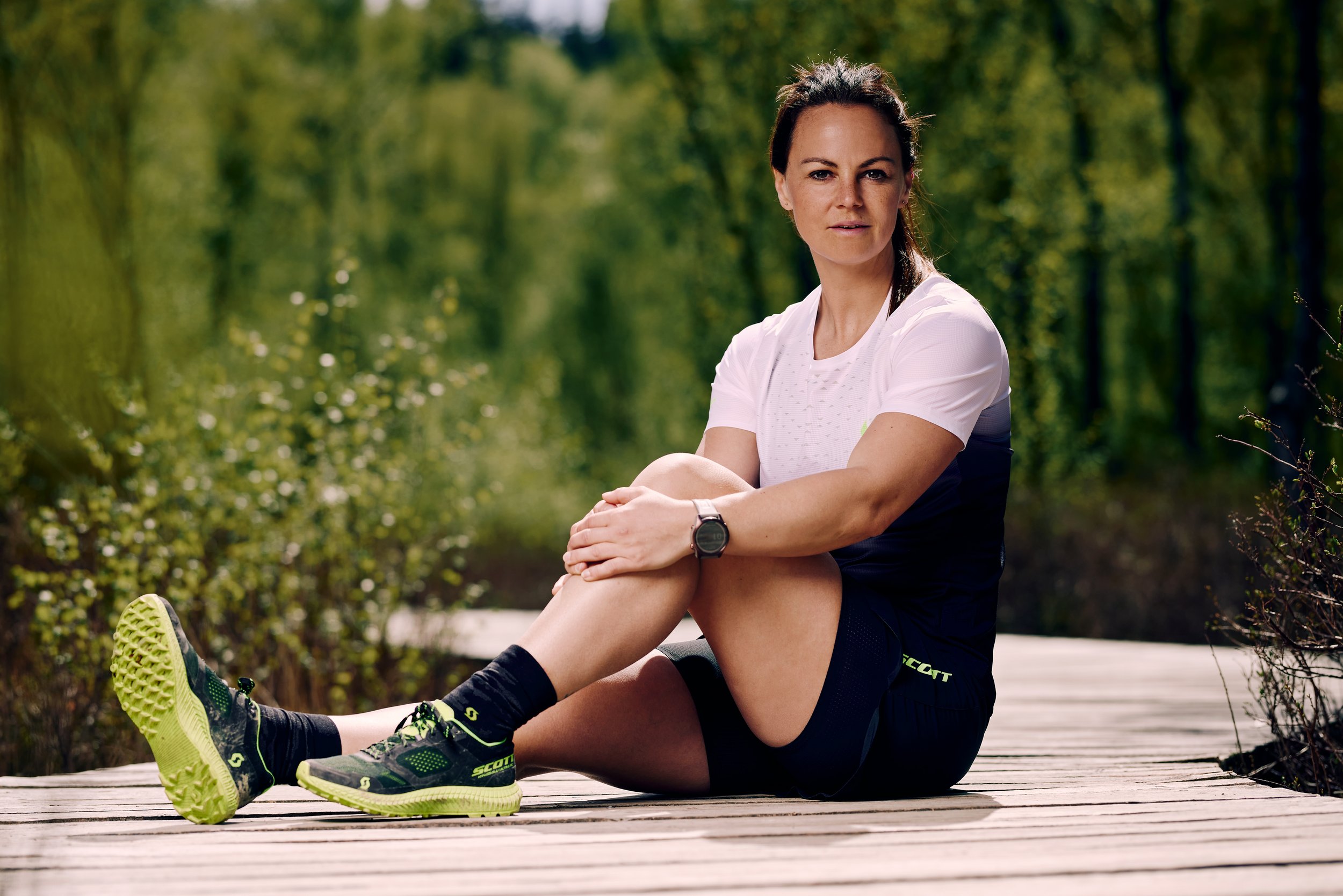 Kristina Schou Madsen is a distinguished athlete and professional ultra runner from Denmark who has achieved remarkable feats in a relatively short span of her career. She is known for her versatility and excellence across various challenging terrains including jungles, ice, deserts, and mountains. Madsen holds a world record on Mount Kilimanjaro for the fastest female ascent and descent. She has also completed the grueling challenge of running seven marathons in seven days on seven continents, twice. In addition to her impressive individual records, Kristina represented Denmark as a trail runner and secured the first female position at the Beyond the Ultimate Jungle Ultra in 2016.
Kristina Schou Madsen is a distinguished athlete and professional ultra runner from Denmark who has achieved remarkable feats in a relatively short span of her career. She is known for her versatility and excellence across various challenging terrains including jungles, ice, deserts, and mountains. Madsen holds a world record on Mount Kilimanjaro for the fastest female ascent and descent. She has also completed the grueling challenge of running seven marathons in seven days on seven continents, twice. In addition to her impressive individual records, Kristina represented Denmark as a trail runner and secured the first female position at the Beyond the Ultimate Jungle Ultra in 2016.
Just 5 days prior to breaking the Speed Ascent record on February 23, 2018, Kristina Schou Madsen reached the summit of Kilimanjaro for the first time on February 18 as part of an acclimatization hike that began on February 13. She was accompanied by Josephine Dewett (who also attempted the record) and Simon Grimstrup, a guide from Topas Travel, both of whom joined her again on the record day. Madsen shared the challenges she faced during the initial trek, as well as on the record day in an article on her website. She felt mostly good during the acclimatization hike, but experienced some nausea on the descent from Uhuru to Kosovo camp and unfortunately sprained her left foot on loose rocks while on a recovery trail run at Millennium camp. Although her foot was bruised and not painful, Madsen decided to reassess her initial goal of attempting the double record for ascent and descent, and instead focus solely on the ascent record.
- Norwegian, Kristin Harila becomes the fastest person to climb 14 highest mountains above 8,000 meters (26,000 feet)
- What is the easiest and fastest route to climb to the top of Mount Kilimanjaro?
- Fastest climber of 7 summits returns safely from Everest
- Nirmal Nims Purja MBE, a.k.a Nimsdai, King of the mountains and EliteExped
![]()

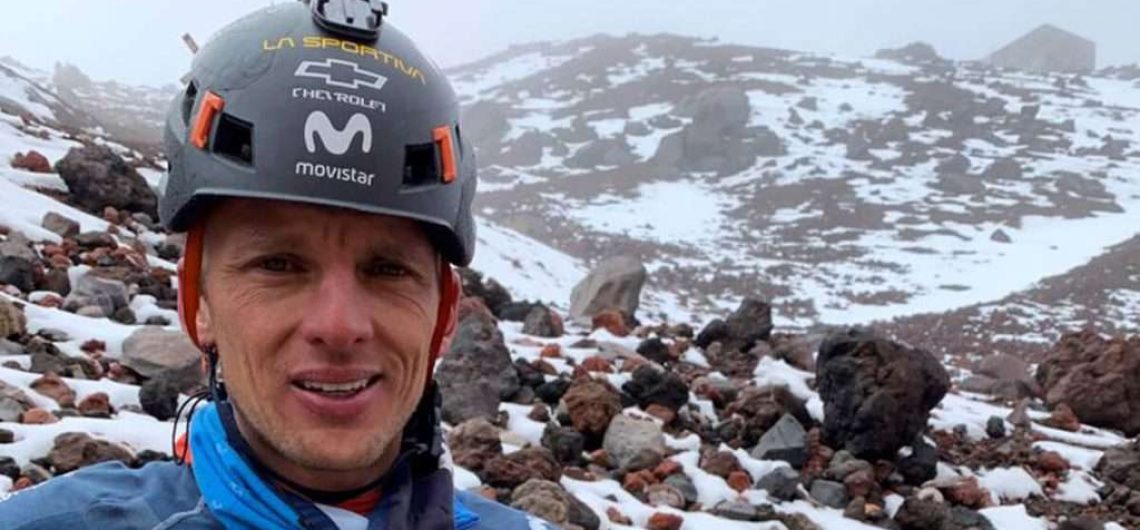
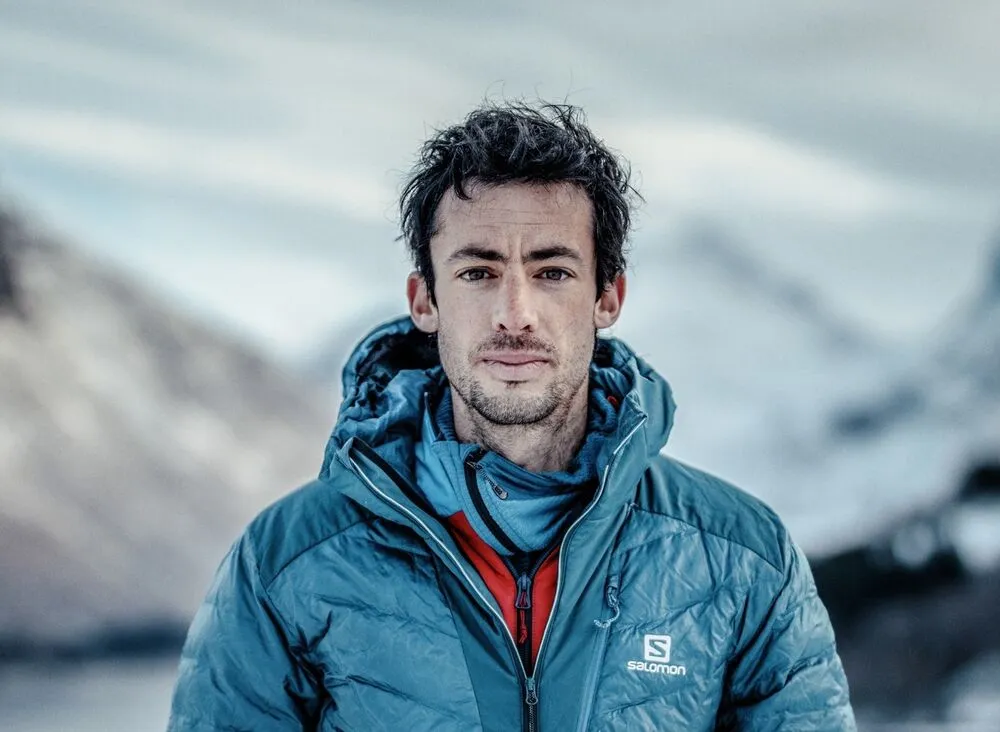
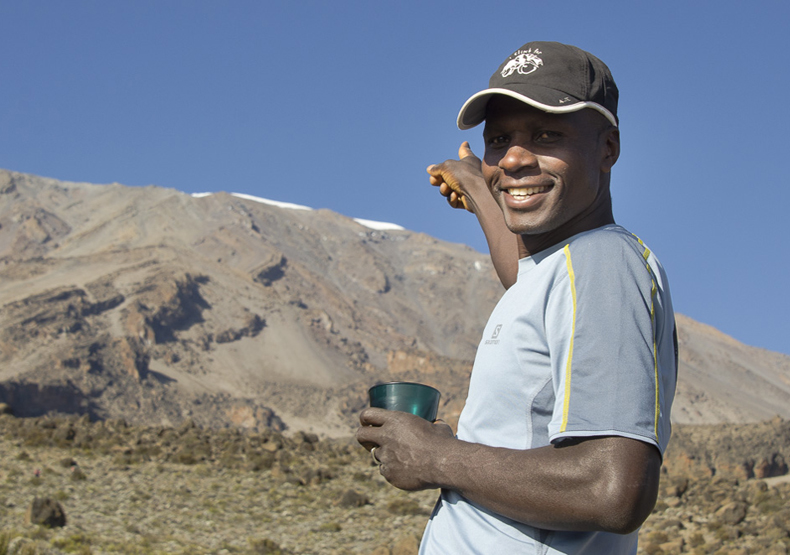
Comments